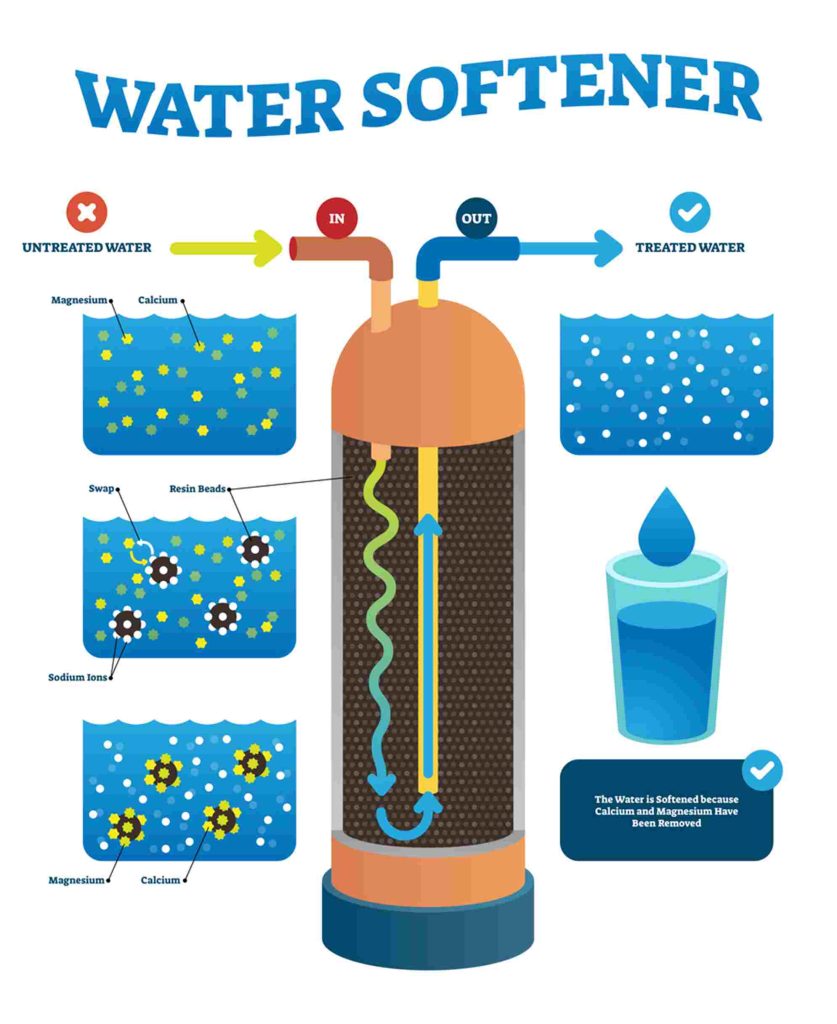Water is something we often take for granted. Simply flip the lever on your kitchen faucet, and out pours an abundance of cold, seemingly fresh water. But not all water is equal, and different geographical areas face various challenges with the quality of the water flowing into their homes. Chiefly among the concerns that homeowners have is the hardness of their water, meaning, the high levels of calcium and magnesium deposits that accompany their seemingly endless supply of H2O. Many homeowners know that the easiest way to combat hard water is to install a water softener, but what is the difference between a water softener and a water filtration system?
What is the Purpose of a Water Softener?
Lots of people have water softeners, and many swear by them as a means to produce higher quality water for their homes. But what is the purpose of a water softener? Water softeners use salt tablets sold in heavy bags at your local hardware store, but there’s a common misconception that it is the salt itself that softens the water. This is not true.
The salt tablets placed into a water softener are actually cleaning agents that work to scrub thousands of resin beads contained within the tank. Using a regeneration cycle, the beads attract unwanted minerals such as calcium and magnesium and hang on to them so that they don’t pass through your pipes and out of your faucets. During this cycle, the salt cleans the beads and keeps them fresh and ready to grab onto more unwanted minerals, while the minerals themselves are drained out. This regeneration cycle takes around two hours to complete and bears a strong resemblance to a form of water filtration…because it is.

What Type of Water Filtration System is Best for Home Use?
Water softeners filter out unwanted minerals that produce hard water, but they are limited to that specific function. If you want to filter out other chemicals, microorganisms, and contaminants, you’ll need to use a water filtration system that is designed specifically for that purpose. There are many types of water filters that you can use in your home, but the most thorough, such as the Life Water Plus filter from Aqua Ultraviolet, use three stages to produce fresh, clean water:
Stage 1: A sediment filter is used to remove dirt, rust, and sediment that can contain harmful pathogens, bacteria, and even viruses.
Stage 2: A carbon filter helps to eliminate any undesirable odors and flavors from your water, leaving it crisp and fresh. This also removes chlorine, pesticides, radon, and more.
Stage 3: A fluoride filter removes excess fluoride, bacteria, algae, mold spores, fungi, yeast, and other sneaky contaminants that aren’t captured by the other filters.
The key to the Life Water Plus filter is that it uses ultraviolet light to destroy the DNA of microorganisms that come in through your municipal or well water supply. Combined with sediment, carbon, and fluoride filters, this process removes all unwanted and harmful contaminants leaving you with safe, pure drinking water.
Can You Use a Water Softener With a Water Filtration System?
Absolutely! For many, a water softener may not be enough to achieve the level of water quality that is desired, and adding a whole-home water filtration system will ensure that the quality is drastically enhanced. For clean, safe, and soft water, this is the way to go.
Achieve the Utmost in Residential Water Quality with Aqua Ultraviolet
Whether you have an existing water softener or are looking to improve the quality of the water in your home, the Life Water Plus filtration system from Aqua Ultraviolet is an affordable investment that will pay dividends in supreme water quality for years to come.
